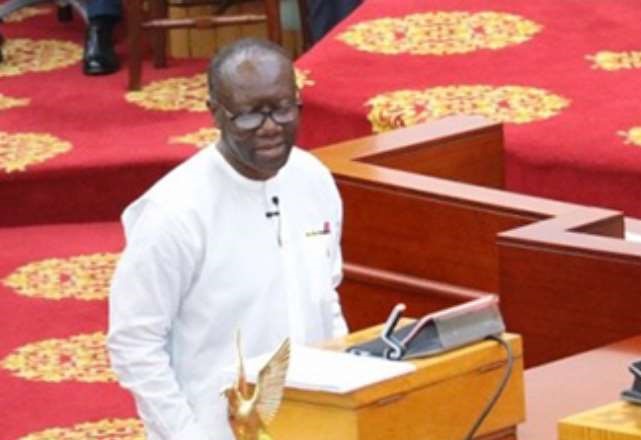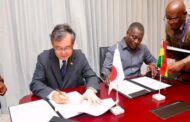Ghana’s Finance Minister Ken Ofori- Atta on November 15, addressed Parliament, presenting the much-anticipated 2024 budget statement against a challenging economic backdrop exacerbated by global uncertainties.
In a candid reflection on the past year, the Finance Minister acknowledged the malevolent forces that converged, creating a perfect storm impacting the lives of Ghanaians.
He said the macroeconomic indicators were uninspiring, prompting a strategic recovery plan.
The recovery plan outlined six key focus areas, including restoring macroeconomic stability, coordinating an equitable debt operation program, protecting vulnerable populations, negotiating a robust IMF program, fostering private sector growth, and attracting green investments for sustainable development.
The Minister highlighted the economic downturn’s toll on Ghana’s stretched revenues, exacerbated by additional expenditures during the COVID-19 pandemic to safeguard lives and livelihoods.
“Mr. Speaker, in two (2) out of the last 7 years (2020-2022) the Ghanaian economy has faced challenges. The economy, growing at an average of 7 percent with a single-digit inflation, declining interest rates and a stabilising currency, suffered unforeseen shocks like many other economies. GDP growth
slumped from 6.5 percent in 2019 to 0.5 percent in 2020 – as the lockdown and closure of businesses and the ports had a devastating effect on the
economy, triggering a cost-of-living crises that has made lives difficult for the Ghanaian people. Though bartered and bruised, we are not broken and our resilience is manifesting” He said .
Noteworthy was the government’s sensitivity during the 2020 election year, with no lay-offs in the public service, timely salary payments, and the provision of free water and electricity to the entire population.
Global disruptions to supply chains, shifts in demand, and adjustments to new forms of work were identified as contributors to the widespread effects on inflation and growth worldwide.
Ken Ofori- Atta made comparative trends in the United States, Eurozone, and the UK underlining the severity of the global cost of living crises.
However, the Finance Minister conveyed a positive shift in the Mid-Year Review, indicating that Ghana had started turning the corner.
He stressed on key indicators, including declining inflation, remarkable economic growth, and improved currency performance, reflected a regained confidence and a real and sustainable recovery.
The Minister underscored turning points such as companies re-entering the job markets, positive assessments from international credit rating agencies, and a thriving banking industry.
“We turned the corner when companies started going back to the job markets to hire workers;
We turned the corner when the International credit rating agencies, which have not been favourable to Ghana in recent years, started being positive about our economy; and We turned the corner when the Banking industry started to record and report a profit-after-tax growth of 43.8 percent (GH¢6.2 billion);We turned the corner when in record time we completed the IMF 1st
Staff Review of 6 Performance Criteria, 3 Indicative Targets and 3 Structural Benchmarks”.
He said completion of the IMF 1st Staff Review further solidified Ghana’s economic progress.
Looking ahead, the Finance Minister outlined a two-fold task: maintaining stability and sustaining growth.
The budget, labeled “Nkunim,” he said symbolizes a commitment to a sustainable path forward, creating decent jobs and wealth for the Ghanaian people.
He said government pledges discipline, compassion, and creativity to ensure economic stability and robust growth.
As the Akufo-Addo Government charts this course, Ghanaians are left with an optimistic outlook for the future, guided by the belief that with dedication, treasures will continue to emerge from dark places and hidden riches in secret corners of the nation.
Source: Mybrytfmonline.com/Obed Ansah



















































